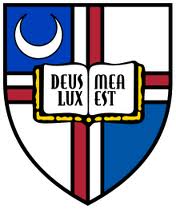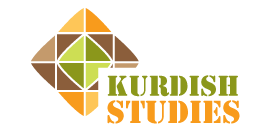 This year’s Human Rights Watch World Report details events around the world from 2012. The report assessed progress on human rights during the 2012 year in more than 90 countries.
This year’s Human Rights Watch World Report details events around the world from 2012. The report assessed progress on human rights during the 2012 year in more than 90 countries.
Kurdistan Commentary has selected issues relating to the Kurds from this massive 665-page report and posted them below. Turkey continues to garner to bulk of the Kurdish-related news in the HRW report, as it has in years past. In the Syria section there is no mention of the Kurds at all. That chapter is focused on abuses taking place in the ongoing civil war in Syria, with no reference to Kurdish regions. The Iran chapter contains minimal information and the Kurdistan section of the Iraq chapter focuses, as in previous HRW World Reports, on freedom of expression and female genital mutilation.
Excerpts below.
Turkey
Turkey’s Justice and Development Party (AKP) government maintained economic growth in 2012 despite a slowdown, and a strong focus on developing a leading regional role, but failed to take convincing steps to address the country’s worsening domestic human rights record and democratic deficit. Prosecutors and courts continued to use terrorism laws to prosecute and prolong incarceration of thousands of Kurdish political activists, human rights defenders, students, journalists, and trade unionists. Free speech and media remained restricted, and there were ongoing serious violations of fair trial rights.
Cross-party parliamentary work on a new constitution to uphold the rule of law and fundamental rights continued, although it was unclear at this writing whether the government and opposition would reach a consensus on key issues such as minority rights, fundamental freedoms, and definition of citizenship.
In March, parliament passed legislation to establish a National Human Rights Institution, and in June, an ombudsman institution to examine complaints against public officials at every level. Human rights groups criticized government control of appointments to the national institution’s board and its failure to meet the test of independence from the government that United Nations guidelines recommend.
With the AKP condoning the mass incarceration of Kurdish activists, and the outlawed Kurdistan Workers’ Party (PKK) escalating attacks, 2012 saw a spiraling descent into violence with armed clashes resulting in hundreds of deaths of soldiers and PKK members, significantly higher than recent years. Throughout 2012, the PKK kidnapped security personnel and civilians, including local politicians, one parliamentarian, and teachers, releasing them periodically. A suspected PKK attack in Gaziantep in August left nine civilians dead, including four children. The non-resolution of the Kurdish issue remained the single greatest obstacle to progress on human rights in Turkey.
Freedom of Expression, Association, and Assembly
While there is open debate in Turkey, government policies, laws and the administration of justice continue to lag behind international standards. The government has yet to carry out a comprehensive review of all existing laws that restrict freedom of expression, although a draft reform package was expected in late 2012 at this writing.
The so-called third judicial reform package came into force in July 2012. It ends short-term bans of newspapers and journals, which the European Court of Human Rights (ECtHR) has criticized as censorship. The law suspends investigations, prosecutions, and convictions of speech-related offenses carrying a maximum sentence of five years that were committed before December 31, 2011, provided the offense is not repeated within three years. Critics fear the threat of reinstatement will continue to muzzle debate.
Thousands charged with alleged terrorism offenses remained in prison throughout their trials. Most of those in prison are Kurdish activists and officials of the Peace and Democracy Party (BDP) standing trial for alleged links to the Union of Kurdistan Communities (KCK/TM), a body connected with the PKK, and in general the ongoing clampdown on the BDP and Kurdish political activism intensified in 2012 with repeated waves of mass arrests and prolonged imprisonment. The trial of 44 Journalists and media workers (31 in detention) began in Istanbul in September. They are among the many journalists, students, lawyers, trade unionists, and human rights defenders imprisoned and prosecuted for association with the KCK.
There was little progress in the main Diyarbakır KCK trial of 175 defendants. The 108 defendants who have been in custody for up to three-and-a half-years include Human Rights Association Diyarbakir branch head Muharrem Erbey, six serving local BDP mayors, several local BDP council members, and five elected BDP parliamentarians.
The July reform package also introduced and encouraged alternatives to remand imprisonment pending trial. But there were no indications that courts apply this to those already held in prolonged prison detention under terrorism charges. Statistics from the Ministry of Justice from May, the most recent data available, indicated that 8,995 of the 125,000-strong prison population were charged with terrorism offenses, and that half of the 8,995 were awaiting an initial verdict.
Combating Impunity
Great obstacles remain in securing justice for victims of abuses by police, military, and state officials.
In December 2011, a Turkish airforce aerial bombardment killed 34 Kurdish villagers, many of them young people and children, near Uludere, close to the Iraqi-Kurdistan border, as they crossed back into Turkey with smuggled goods. Concerns that there had been an official cover-up were fuelled by repeated statements by the prime minister rejecting calls by media, opposition parties, and families of victims for a full explanation of the incident, lack of a public inquiry, and a protracted criminal investigation that had not concluded at this writing.
Key International Actors
Turkey’s European Union accession negotiations remained stalled. The election of France’s President François Hollande helped to improve French-Turkish relations. In October, the European Commission in its annual progress report voiced strong criticism in most areas relating to human rights, emphasizing the importance of work on a new constitution, and stressing “the Kurdish issue remains a key challenge for Turkey’s democracy.”
The United States government remains an important influence on Turkey, sharing military intelligence on PKK movements in northern Iraq.
In January, a groundbreaking report by the Council of Europe (CoE) commissioner for human rights focused on “long-term, systemic problems in the administration of justice,” and its negative impact on human rights.
In its October review of Turkey, the UN Human Rights Committee recommended reforms including amending the National Human Rights Institution law, introducing comprehensive anti-discrimination legislation, and addressing the vagueness of the definition of terrorism in law and prolonged pretrial detention.
Iran
Death Penalty
In 2011 authorities carried out more than 600 executions, second only to China, according to Amnesty International. Crimes punishable by death include murder, rape, trafficking and possessing drugs, armed robbery, espionage, sodomy, adultery, and apostasy.
Authorities have executed at least 30 people since January 2010 on the charge of moharebeh (“enmity against God”) or “sowing corruption on earth” for their alleged ties to armed groups. As of September 2012, at least 28 Kurdish prisoners were awaiting execution on national security charges, including moharebeh.
Treatment of Minorities
The government restricted cultural and political activities among the country’s Azeri, Kurdish, Arab, and Baluch minorities.
Iraq
In April, Iraq’s parliament passed a law criminalizing human trafficking, but has yet to effectively implement it. The Kurdistan Regional Government (KRG) has not taken steps to implement a 2011 law banning female genital mutilation (FGM).
Freedom of Assembly
Security forces continued to respond to peaceful protests with intimidation, threats, violence, and arrests of protesters. On February 17, hundreds of security forces of the KRG surrounded a peaceful demonstration in Sulaimaniya’s Sara Square. Dozens of men in civilian clothing attacked protesters and made many arrests.
Freedom of Expression
The environment for journalists remained oppressive in 2012. The Iraqi parliament was at this writing considering a number of laws restricting the media and freedom of expression and assembly, including the draft Law on the Freedom of Expression of Opinion, Assembly, and Peaceful Demonstration, and a draft law regulating the organization of political parties that punishes expression “violating public morals” and conveying “immoral messages.” In September, the Federal Supreme Court denied a petition by a local press freedom organization to repeal the Journalists Protection Law on the basis that it fails to offer meaningful protection to journalists and restricts access to information.
The Committee to Protect Journalists (CPJ) ranked Iraq at the top of its 2012 Impunity Index, which focuses on unsolved journalist murders, and reported that there have been no convictions for murders of journalists since 2003. Iraqi authorities made no arrests for the murder of Hadi al-Mahdi, a journalist critical of the government, killed in September 2011. Another journalist, Zardasht Osman, was abducted and murdered after publishing a satirical article about KRG president Massoud Barzani in 2010. The KRG never released details of the investigation into his death.
Women’s and Girls’ Rights
In June 2011, the KRG parliament passed the Family Violence Bill, which includes provisions criminalizing forced and child marriages; abuse of girls and women; and a total ban on FGM. Implementation of the law is poor, and dozens of girls and practitioners said that they had either undergone or performed FGM since the law was passed. The authorities took no measures to investigate these cases.
To see the entire 665-page report, go to the World Report 2013 page on the HRW website.
 A interesting research project to learn more about TV habits of Kurdish speakers in Turkey. Who watches which channels? See link below for survey.
A interesting research project to learn more about TV habits of Kurdish speakers in Turkey. Who watches which channels? See link below for survey.








 As Turkey’s biggest Kurdish-majority city and province, Diyarbakır is critical to any examination of the country’s Kurdish problem and of the insurgent PKK (Kurdistan Workers’ Party). The armed conflict has deteriorated in the past year and a half to its worst level in over a decade, with increased political friction and violence leading to the deaths of at least 870 people since June 2011. While as many Kurds live in western Turkey, particularly in Istanbul, as in the south east, grievances that underlie support within Kurdish communities for the PKK’s armed struggle are more clearly on display in predominantly Kurdish areas like Diyarbakır: perceived and real discrimination in the local government and economy, alienation from central authorities, anger at mass arrests of political representatives and frustration at the bans on the use of Kurdish in education and public life. Yet Diyarbakır still offers hope for those who want to live together, if Ankara acts firmly to address these grievances and ensure equality and justice for all.
As Turkey’s biggest Kurdish-majority city and province, Diyarbakır is critical to any examination of the country’s Kurdish problem and of the insurgent PKK (Kurdistan Workers’ Party). The armed conflict has deteriorated in the past year and a half to its worst level in over a decade, with increased political friction and violence leading to the deaths of at least 870 people since June 2011. While as many Kurds live in western Turkey, particularly in Istanbul, as in the south east, grievances that underlie support within Kurdish communities for the PKK’s armed struggle are more clearly on display in predominantly Kurdish areas like Diyarbakır: perceived and real discrimination in the local government and economy, alienation from central authorities, anger at mass arrests of political representatives and frustration at the bans on the use of Kurdish in education and public life. Yet Diyarbakır still offers hope for those who want to live together, if Ankara acts firmly to address these grievances and ensure equality and justice for all.
